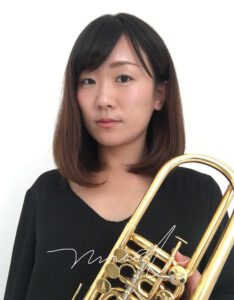Educational Insights 2 – January 2024 – Misaki Fukushima
Practice makes perfect: 6 helpful tips for daily training at home (Misaki Fukushima)
(For German version click here!)
Picking up your instrument every day after school, university or work and practicing at home is not always possible for musicians of all ages. This is because the daily practice session without a teacher requires not only time, but also a great deal of discipline. It is important to never just „play anything“, but to always pay attention to a clear structure. This makes practicing as efficient as possible and keeps the joy of making music alive.
In this blog post, Misaki Fukushima presents some useful tips to increase effectiveness and boost motivation.
1. Define a clear goal
Thinking about the purpose of each practice session is a crucial factor in your own development. It is far more efficient if you know exactly what you are exercising for and what you want to achieve. This makes good use of your time and allows you to work specifically on weak points.
2. Imagine your own sound
Imagining a specific sound while practicing can expand the variety of the instrument. For example, if you think about the tonal nuances of the note c‘ beforehand, you can expand your own range: Should it sound loud or soft, mellow or smooth or perhaps even harsh or sharp? Here you can also mentally summarize the idea in an image, a smell, a color or something similar. These ideas allow you to experiment with sound in a very special way.
3. Listen to music
Exploring different styles of music is very important for developing sound ideas. Platforms such as YouTube, Spotify or even the local library offer access to a wide range of recordings. Tip: Look for original recordings of the pieces you are practicing to hear authentic interpretations.
4. Singing
You don’t have to play every difficult passage ten times in a row. Sometimes it also helps to sing the notes – either actually or just in your head. This not only saves energy, but also helps you to hit the right pitch and sharpen your musical ear.
5. Questions
It is always helpful to ask questions and ask for help if you have difficulties or are unclear. The direct teacher and also friends can offer valuable insights and advice. It is best to approach several people to get different perspectives and try out different approaches.
6. Play high notes (as a bonus)
As a special highlight during an intensive rehearsal session, you can try a special „experiment“. For fun – and without pressure! – you can try to play the highest possible note. If you do this regularly, you will soon be surprised at the heights that are possible. And: through regularity, the high notes will eventually become normal.
Conclusion:
Daily practicing not only becomes more efficient thanks to clear, structured goals and creative freedom, but is also very enjoyable in the long term. Experimenting with different playing styles, volumes and trebles is an important part of this. It should also always be clear that not every day is the same: sometimes things go fantastically well, sometimes nothing works at all. Only those who continuously work on their own skills can continue to develop.

